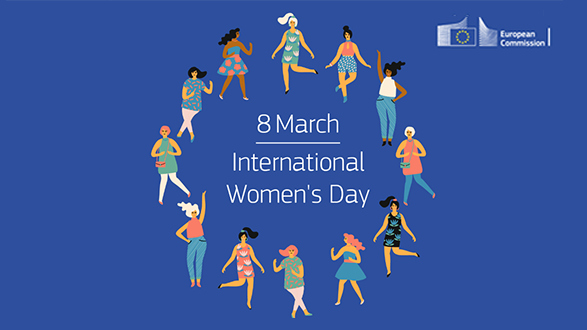
The theme of the 2023 International Women’s Day is 'DigitALL: Innovation and technology for gender equality'. The gender digital divide prevents women from fully reaping the benefits of the digital transition. Investments in education and skills training for women and girls play a fundamental role to enhance women’s position in all fields and to close the gender pay gap.
Gender equality is therefore not only a question of fundamental rights. It is also necessary for the EU’s fair, sustainable and digital economic development – and for cohesion funds, such as the European Social Fund Plus (ESF+), that invest into it.
ESF+: the biggest cohesion policy contributor to gender equality
Almost €85 billion from the ESF+ investments 2021-2027 planned by the Member States will contribute to gender equality through gender mainstreaming or specific measures. Member States have programmed €4.3 billion from the ESF+ to support gender-balanced labour-market participation. This funding will allow Member States to develop work-life balance policies, including in the workplace, ensure gender-sensitive policies, increase the labour-market participation of women, provide access to affordable and accessible care services for children, older persons or persons with disabilities, as well as tackle gender stereotypes.
In addition, the ESF+ Regulation obliges Member States and the Commission to support actions to promote gender equality, including increasing the participation of women in employment, building better work-life balance and childcare and combatting the disproportionate numbers of women in poverty, as well as fighting gender discrimination in the labour market and in education and training.
During the 2021-2027 funding period, ESF+ investments must also show their impact on gender equality. The new reporting system will allow to better map how funding is reaching projects that have the biggest impact on gender equality.
Examples of projects
In Austria, companies can now receive free consultancy to help them close the gap, thanks to ‘100 Percent’ , a project supported by the European Social Fund. 100 Percent supports companies to design transparent remuneration systems, and to recognise and improve opportunities for women at work. As well as raising awareness of the gender pay gap, the project shows companies how making better use of the diversity of their workforce can promote innovation and resilience.
In Denmark, the ‘Entrepreneur Denmark’ project empowers individuals to become entrepreneurs by providing business guidance, economic support, and tailored competency development to ensure their companies’ survival and growth. Funded by the Recovery Assistance for Cohesion and the Territories of Europe (REACT-EU) fund, the project targets gender equality in the workplace. The self-employment rate for women in Denmark was only 4.9% in 2016, which was less than half the rate for men (10.2%). One of the ways to deliver gender balance in business leadership is to increase the number of female founders ─ that means supporting women entrepreneurs.



